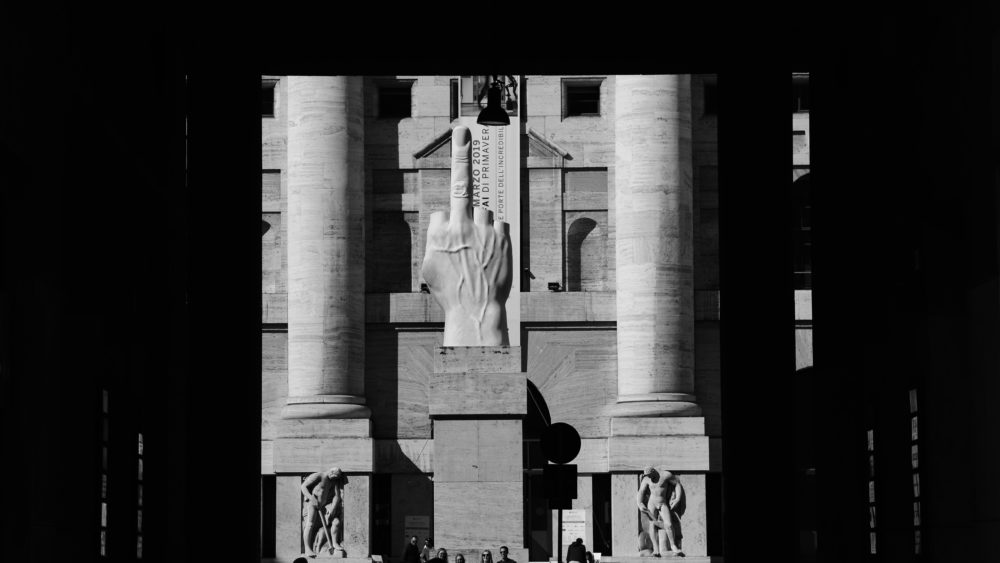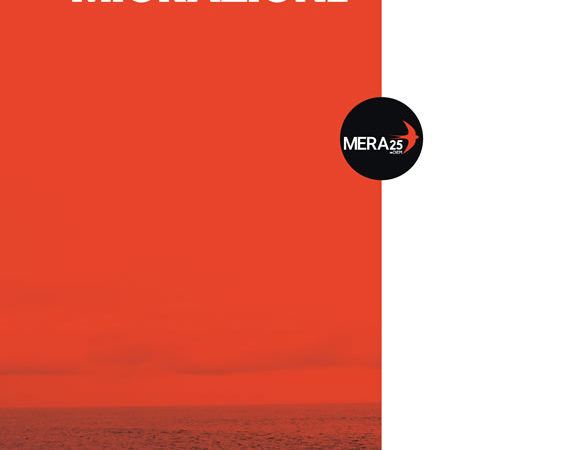So far, the Left has proven unable to create a post-capitalist narrative. But the rise of fascism and climate crisis could offer an opportunity to reinstate it to its proper place: the forefront of the fight for a world of equality, solidarity and peace.
The financial crisis of 2008 and the inability of progressive political actors (Left, Greens, Liberals) to offer a persuasive alternative to capitalism’s destruction of human societies and the environment, has led the Left to a crisis similar to the one that followed the fall of the Soviet Union in ’91.
This new 21st century crisis is not existential, like the previous, but Gramscian – in that it is a crisis that comes about when the old dies and the new cannot yet be born. What died in 2008, however, was not the Left, but its sworn enemy: capitalism.
Capitalism, even though dead, continues to live
The bursting of the 2008 bubble proved that a deregulated market does not lead us to the promised land where the Invisible Hand of the Market is God, but that instead the economy remained what it always has been: dependent on the state and taxpayers. This failure should have been the battlefield where proletarians won the “final victory”, but it was not to be.
The post-Soviet Left, weakened as it was in 2008 – either trapped in the terminology of the failed Soviet experiment or surrendered to the powers of the market and conciliated with the idea of “capitalism with a human face” – did not have the tools or the credibility to forge a truly progressive narrative for a post-crisis world. Thus, capitalism, even though dead, continues to live. We are in the age of zombie-capitalism, which has also given rise to another walking corpse: fascism.
The Left’s inability to offer a vision
In Greece we experienced the final episode of this failure of the Left first-hand. The SYRIZA government, despite Yanis Varoufakis’ plan and the support of not only the majority of the Greek people, but of many of our fellow European citizens, chose to succumb days before a historic moment not just for Greece and the peoples of Europe, but for the history of the global Left. Instead, the Radical Left government chose to prove, once again, that there is no alternative to the Establishment – not matter how failed and irrational it might be.
One could argue that the Left’s inability to offer a vision of a post-capitalist world is indicative of unhealthy self-identification as capitalism’s adversary: a de facto underdog. If capitalism doesn’t exist, neither does the Left.
A (not so) new crisis: climate catastrophe
Simultaneously, a major political, economic, social and environmental drama is taking place across the planet: climate catastrophe. Beyond the “usual” stories of pollution (from big industry, industrial farming, transport, energy production), these past few weeks, huge regions of the Amazon and the forests of the Arctic Circle (from Siberia to Alaska) are in flames. In general, humanity is confronted by extreme weather phenomena at an ever increasing frequency, and they are submitting our societies and economies to never-seen-before pressures.
Climate catastrophe will make entire regions of the planet unliveable, leading economies to collapse and huge populations to migration. Our current migration policies within the EU (from Italy and the Ukraine to Greece) are leading us to increasingly misanthropic measures. How long before “extreme pressures” lead our increasingly authoritarian governments to install machine-guns on the borders and cut down the masses seeking to escape the hell that we have made of our planet? If we do not stop the continuous acceleration of climate change and the destruction of the planet’s ecosystems, we will wake up one day in a world where humanity will already have lost: first ethically, and then biologically.
A new opportunity: the Green New Deal for Europe
It is in these gruelling conditions that we find the Left in a state of Gramscian crisis, the resolution of which might be able to reinstate it to its proper place: the epicentre of the fight against capitalism and fascism. This will depend on our ability to recognise the needs and interests of the people of the world and to rally, with all those who agree, around a common plan for their defence. That plan is the Green New Deal for Europe.
The Greens will not save us: they either cannot or do not intend to. Split between factions of the original Green movement such as the German Greens (in bed with the automotive industry), neoliberal factions which insist on depressingly inadequate measures (ban straws!) which they then present as victories, or well-meaning Greens that nonetheless band together with the two aforementioned factions for political gain. No, the Greens will not save us.
Extractive capitalism has brought humanity to the edge. Now is the time for the combination of the environmental action of the Greens, the economic and social analysis of the Left, and the philosophy of true Liberals, to create an alliance which will set the foundation for that which the Left has fought for centuries: a world of solidarity and equality.
Our battle starts with the European Union
Climate catastrophe is offering the terrifying and yet unique opportunity of a global existential crisis, which creates the challenge of a world system-change that unites all of the worlds’ people. Leftists who have forgotten the internationalism that characterised our movements would do well to remember it and abandon the doomed idea of “socialism in one country”, in a world that is intertwined and interdependent. Or have we forgotten also that “a nation cannot become free and at the same time continue to oppress other nations”?
This battle for us Europeans starts with the European Union and the wrestling away of its institutions from the hands of the big interests that currently control them.
DiEM25, the pan-European movement for the democratisation of Europe, has exactly this goal. By uniting Europeans around a common policy programme for Europe, it is writing history. MeRA25 is the electoral expression of this project in Greece, with similar parties being founded around Europe.
Our mission is a difficult one, but no one wrote history by aiming at the easy solutions. We write history when we do what we think is right and just. Change is hard, but not impossible. What is impossible is the idea that Europe and the global financial system can stay the same and survive.
The original piece was published on Efsyn.gr (26/08/19) under the title “Ο Μεγάλος Επαναπροσδιορισμός”.
On September 2, the Green New Deal for Europe published its policy paper “Blueprint for Europe’s just transition“ which is open for public consultation until September 16.
Photo above: Milan, Piazza Affari, by Simone Pellegrini
Volete essere informati delle azioni di DiEM25? Registratevi qui!




